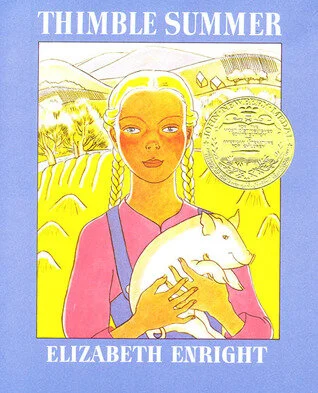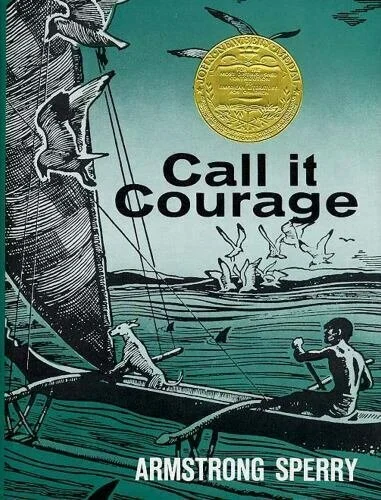Thimble Summer (1939)
The 1930s were a rough time to be an American. Following the stock market collapse in 1929, the country spent most of the decade in the Great Depression—jobs were scarce, money was scarcer, and the Dust Bowl pitched half a million people into homelessness. The world didn’t really start digging itself out of the Depression until 1940, when World War II really kicked into high gear (more on that coming up). Unsurprisingly, the Newbery winners during the decade largely avoided anything to do with the economic catastrophe. Thimble Summer is the first winner even set in the time period. And while I’m sure it does a fine job reflecting the realities of growing up in the ‘30s, it also makes it seem like a really boring time to be a kid.
Take the titular object: a solid silver thimble that 10 year-old Garnet finds in a riverbed. It’s mentioned all of three times throughout the whole book—when she finds it, when she sees it in her room, and when she reflects upon the summer in the end—and it doesn’t do anything. A list of the “magical” things that happen that summer: it rains once, Garnet gets a free chicken, and a runaway boy joins her family. Novel? Perhaps. But Lord of the Rings this ain’t. It also doesn’t help that Thimble Summer comes so quickly after Caddie Woodlawn and Roller Skates, two other books about young girls that are significantly more interesting and culturally revealing (for better and for worse) than this slight slice of country life.
Therein lies Thimble’s cardinal sin: it’s just boring. Elizabeth Enright is a fine writer, and she based the book off stories from her own life (as well as her grandmother’s), but nothing here leaves an impression. I’m especially surprised the book took home the award when at least one of the other nominees, Mr. Popper’s Penguins, still stands as a classic of children’s literature in its own right. Thimble Summer is competent and reflects its time, but there’s nothing here that I’ll remember in a week.



